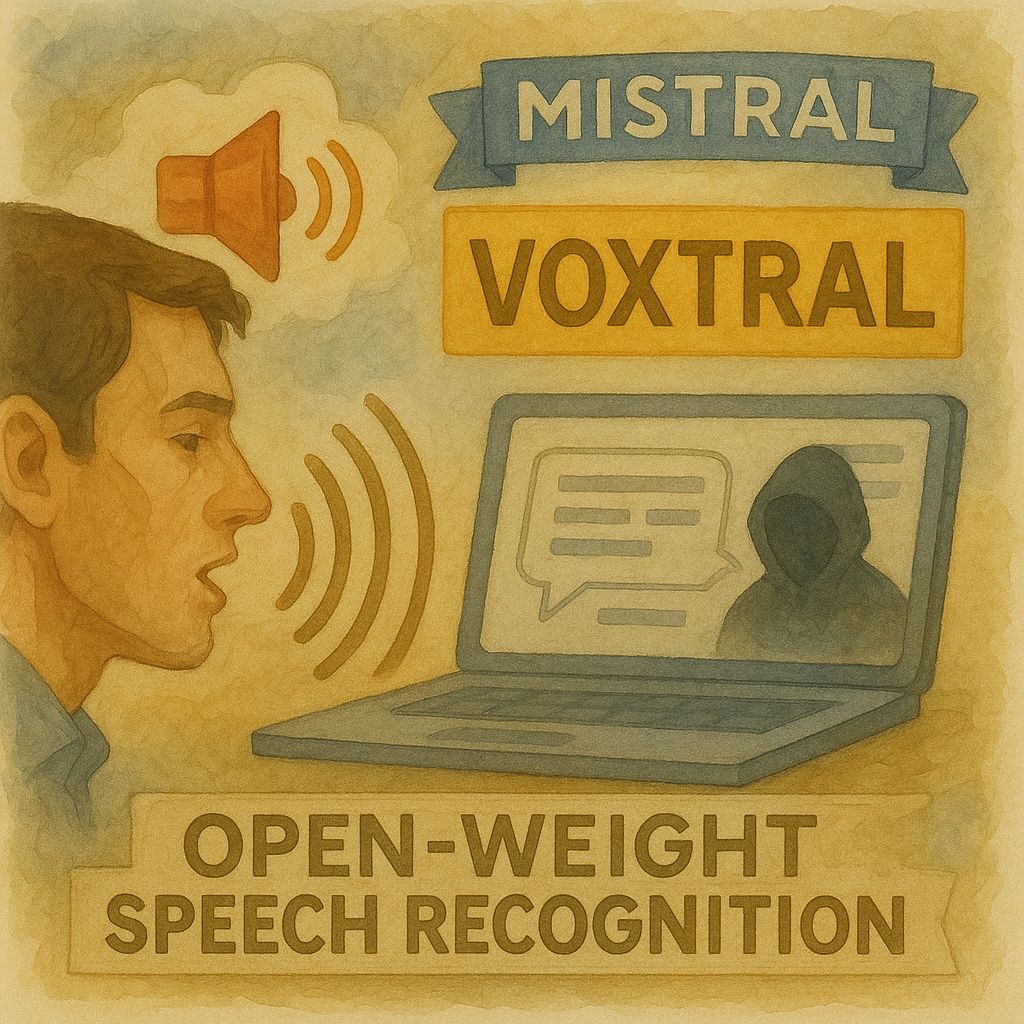- The Recap AI
- Posts
- The China chip ban reverses
The China chip ban reverses
PLUS: Mira Murati's $2B startup, Google foils a zero-day, and Mistral's new voice model
Good morning, AI enthusiast.
The U.S. government has reversed its policy on AI chip sales to China, allowing Nvidia and AMD to resume selling key processors to the country. This move sent chip stocks soaring and could reshape the global AI hardware landscape.
The new strategy aims to keep China reliant on the American tech stack by selling them powerful, but not top-of-the-line, models. Will this approach successfully balance economic interests with national security concerns, or will it inadvertently accelerate China's own chip development?
In today’s AI recap:
AI Training: Generate Viral Clips from YouTube Videos (watch here)
The U.S. reverses its AI chip ban on China
Mira Murati’s new $2B AI startup
Google’s AI foils a zero-day exploit
Mistral’s new open-weight voice model
The China Chip Ban Reverses

The Recap: In a major policy reversal, the U.S. government is allowing Nvidia and AMD to resume selling key AI chips to China, a move that sent chip stocks soaring and could reshape the global AI hardware landscape.
Unpacked:
The strategy, according to Commerce Secretary Howard Lutnick, is to sell China chips that are powerful enough to keep them dependent on the American tech stack, but not the top-tier models used by U.S. companies.
The previous ban had significant financial stakes, as Nvidia alone warned of a $5.5 billion hit from the restriction on its H20 processors.
The chips in question, Nvidia's H20 and AMD's MI308, were specifically developed for the Chinese market in response to earlier, less stringent U.S. export controls.
Bottom line: This decision immediately reopens a multi-billion dollar market for U.S. chipmakers that had been effectively closed. The policy shift suggests a new phase in the tech rivalry, prioritizing economic influence over a complete technological blockade.
The $2B Bet on Murati

The Recap: Former OpenAI executive Mira Murati’s new startup, Thinking Machines Lab, has secured a massive $2 billion in funding at a $12 billion valuation, signaling immense investor confidence in the next wave of AI leadership.
Unpacked:
The raise, led by Andreessen Horowitz, is remarkable for a company launched only in February with no current product or revenue.
Nearly two-thirds of the initial team comes from OpenAI, continuing the trend of top talent spinning out to create new ventures focused on safer, more reliable AI.
Murati says the first product will be shared in the next couple of months and will feature a significant open source component for researchers and startups.
Bottom line: This massive pre-product investment underscores that capital is flowing to proven talent, not just established platforms, in the high-stakes AI race. The entry of another well-funded, top-tier team intensifies competition and accelerates the push for more capable and collaborative AI systems.
AI Training
The Recap: In this video, I'm showing you how to use n8n and Vizard to build a clipping system that takes a YouTube video as input and generates dozens of viral clips that can be posted across your social media accounts.
P.S We also launched a free community for AI Builders looking to master the art and science of building AI Automations — Come join us!
Google's AI Stops a Zero-Day

The Recap: In a claimed industry first, Google announced its AI agent, Big Sleep, proactively discovered and helped foil a zero-day exploit before it could be used by attackers. This marks a major milestone for AI in defensive security.
Unpacked:
The agent pinpointed a critical vulnerability (CVE-2025-6965) in SQLite, an open-source database engine used by countless developers.
The discovery was a result of human-AI collaboration, where Google's threat intelligence team identified staging activity and then used Big Sleep to find the exact flaw.
Google is now using Big Sleep to help secure other open-source projects and has published a framework for building these agents responsibly.
Bottom line: This achievement signals a shift from reactive to proactive cybersecurity, where AI can anticipate threats before they are deployed. The development allows security teams to scale their impact by focusing on higher-level strategic defense rather than manual vulnerability hunting.
Where AI Experts Share Their Best Work
Join our Free AI Automation Community
Join our FREE community AI Automation Mastery — where entrepreneurs, AI builders, and AI agency owners share templates, solve problems together, and learn from each other's wins (and mistakes).
What makes our community different:
Real peer support from people building actual AI businesses
Complete access to download our automation library of battle-tested n8n templates
Collaborate and problem-solve with AI experts when you get stuck
Dive into our course materials, collaborate with experienced builders, and turn automation challenges into shared wins. Join here (completely free).
Mistral's Voice Challenger

The Recap: Paris-based Mistral has launched Voxtral, a new family of open-weight speech recognition models that aim to deliver high performance at a much lower cost than proprietary competitors. The release challenges established players like OpenAI in the audio space.
Unpacked:
Voxtral comes in two sizes: a 24B parameter model for large-scale production and a smaller 3B variant designed for edge and local deployments.
The company claims its API offers comparable or better performance than rivals at less than half the price, with transcription starting at just $0.001 per minute.
Developers can access the models through an API, try them in Le Chat, or run them locally after being downloaded from Hugging Face.
Bottom line: Mistral is aggressively expanding its open-source stack into the audio domain, directly competing on both performance and price. This provides developers with more powerful and affordable tools to build the next generation of voice-enabled applications.
The Shortlist
Meta reportedly is considering abandoning its 2-trillion-parameter Llama 4 Behemoth model after poor internal performance and a strategic shift toward a closed-source model within its new superintelligence lab.
xAI landed a contract worth up to $200 million from the U.S. Department of Defense to help modernize the agency, just one week after its Grok model sparked controversy for generating antisemitic content.
Cartesia introduced Hierarchical Networks (H-Nets), a new AI architecture that learns to dynamically chunk and compress raw byte-level data into meaningful concepts, reportedly scaling better and showing more robustness than traditional token-based Transformers.
What did you think of today's email?Before you go we’d love to know what you thought of today's newsletter. We read every single message to help improve The Recap experience. |
Signing off,
David, Lucas, Mitchell — The Recap editorial team

